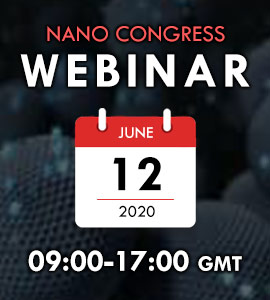
Marwa Hassan
2Immunology Department, Theodor Bilharz Research Institute, Giza, Egypt.
Title: Protective Effects of Free Curcumin and Its Nanoparticles on Diethylnitrosamine-Induced Hepatocellular Carcinoma in Murine Model
Biography
Biography: Marwa Hassan
Abstract
Curcumin, a natural compound present in turmeric, has a potential aptitude to suppress carcinogenesis in pre-clinical models. However, its therapeutic applications are constrained by its prominent metabolic instability as well as inadequate absorption. The current study was designed to enhance the curcumin bioavailability by exploiting the drug delivery systems; nanoparticles. Eleven groups of mice with six animals in each group were divided into: control group, hepatocellular carcinoma (HCC) group induced by diethylnitrosamine (DEN) injection, 2 groups treated with DEN plus high dose (50 mg/kg) and low dose (10 mg/kg) of free curcumin, 2 groups treated with high and low dose of free curcumin, nanoparticles control group, 2 groups treated with DEN plus high dose (3.3 mg/kg) and low dose (0.6 mg/kg) of nanoparticulate curcumin, and 2 groups treated with high and low dose of nanoparticulate curcumin. It was found that DEN administration significantly increased serum liver enzymes, VEGF, TNF-α, AFP, MDA, and NF-kB. Also, it decreased serum albumin and tissue antioxidant activities and caused severe histological changes in hepatic tissue. Oral treatment of DEN-injected mice with either high dose of free curcumin or the two tested doses of nanoparticulate curcumin resulted in a significant improvement of all the tested parameters and the histopathology of liver tissue. In conclusion, our results showed that the high dose of free curcumin and the two doses of nanoparticulate curcumin were effective in preventing DEN-induced HCC indicating that the nanoparticles improved curcumin bioavailability as they were effective in preventing HCC despite their enormously low doses.

